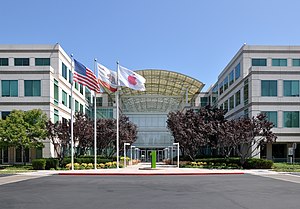Is Apple Bringing 700,000 Jobs Back To America?
Mar 02
When I logged onto Facebook on Thursday evening, two of my friends has posted a link to an article proclaiming the great news. Apple was going to bring 700,000 jobs to America – jobs that are now down by workers overseas (mostly in China).
The grand plan was to drop 70,000 on each of ten cities spread throughout the country. By the end of 2013, all 700,000 jobs would be staffed. Apple, a company that was fighting for its very existence just 15 years ago, would breath life into the economy and slash the unemployment rate from 8.3% to 7.8% – a tremendous amount of impact from just one company.
The news made sense for a few reasons:
- Apple’s never been one to follow the lead of other companies, often opting for unconventional paths. Not only that, but with CEO Tim Cook out of the shadow of Steve Jobs, maybe Cook would make some decisions that Steve wouldn’t have.
- Apple has around $100 billion in cash and has a market capitalization in excess of a half trillion dollars. That’s not a typo. Apple is the most valuable company in the world – and it’s not particularly close. Oil giant Exxon Mobil trails by a hundred billion dollars – meaning that it is worth 20% less than Apple. If Apple wanted to employ 700,000 workers in the US, it could afford to.
- Finally, Apple has been under fire for the working conditions at FoxConn, one of its major partners. FoxConn is a large company that builds components for a lot of tech industry giants, but Apple has been the company taking the most heat.
I wasn’t born yesterday, however, so I hit Google and search for the news on other sites. Nobody else was running the story. That seemed odd. Heck, Apple’s own site didn’t mention it.
Gotcha
Then I read the article more closely. Really, 700,000 jobs by the end of 2013? Was it even possibly to get factories built in that amount of time? Sure, Apple could probably take over the facilities of some bankrupt companies and retrofit the facilities, but that still seems like a pretty aggressive timeline.
And the quote from the Chamber of Commerce seems a bit out of line:
“Just because corporations get the rights of American citizens doesn’t mean they should be burdened by the same responsibilities,” the statement said. “For example, everyone knows people can’t kill people — but sometimes job creators like corporations need to be able to kill people, as the Supreme Court is working on right now.”
So I look at the subject tags. Yes, one of them was “satire”. And in the comment, writer Shane Finnegan admitted that this was indeed a satirical piece. And why not? It’s his job to write satire for the Ocean Beach Rag.
Well played, Shane.
But why not?
Why doesn’t Apple, or some other tech company, bring jobs back to America? It’s all about the money, of course. Labor in China is far cheaper than in the United States, and there’s no hiding the fact that it’s also more expensive to comply with US safety regulations.
If there is ever a flood of manufacturing jobs back into the United States, tech companies will probably be the last ones to the party. Why? Because computers, TVs, and smart phones have a very high cost:weight ratio. The cost of shipping an iPhone or a MacBook Pro from China is a tiny percentage of the cost of the item, so it’s really not that expensive to ship them. Ramen noodles, on the other hand, have a low cost:weight ratio, so shipping them thousands of miles would be relatively expensive, percentage-wise.
At this point, there’s not much incentive for companies to bring jobs back to the US. Sure, it’s what the citizens want, but the higher labor costs would make a company’s products much more expensive than those of their competitors. At this point, I don’t see this changing at an point in the future, unless the government decides to make it prohibitively expensive to import the finished products.
News
Apple, China, FoxConn, iPhone, Steve Jobs, Tim Cook, United States
 RSS
RSS
